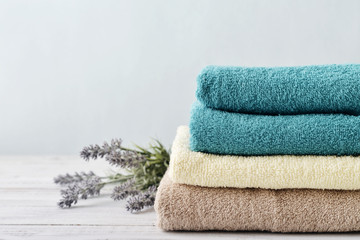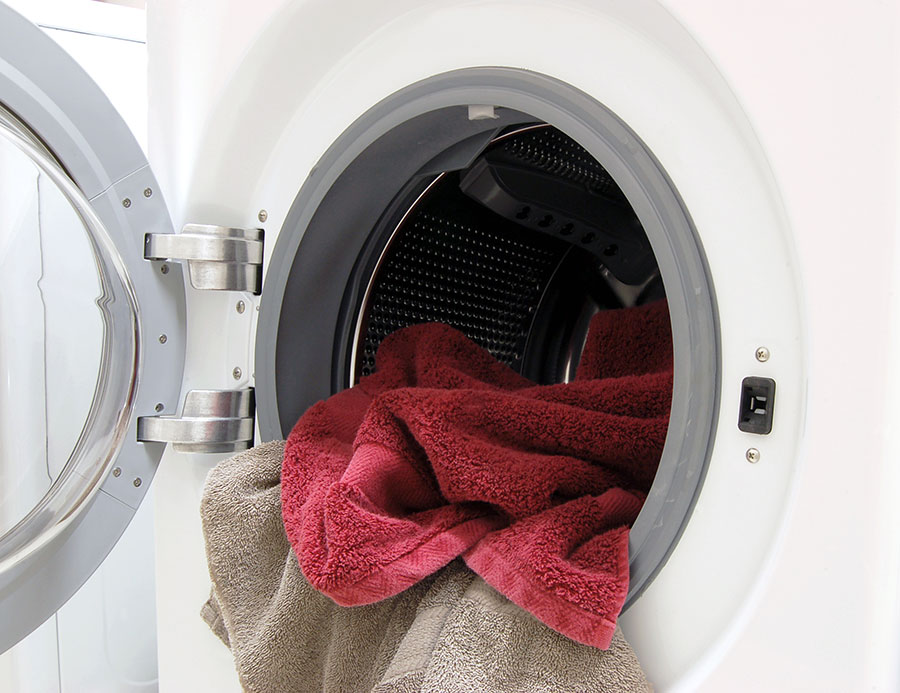
What Setting Do You Wash Towels On? (Explained)
Cleaners Talk is reader-supported. This post contains affiliate links, we may earn a commission at no additional costs to you. As an Amazon Associate we earn from qualifying purchases.
While towels are not the sort of item we’d second-guess throwing in the wash in whatever setting, how we treat our towels can affect their longevity and quality over time.
Now, it won't ruin your towel if you wash it in whatever way is most convenient. But if you have spent money on high-quality towels, you may want to pay attention to the setting you should wash towels on to keep them feeling clean, smooth, and nice for as long as possible.
Separating Your Towels
One thing many people may not even think about is separating their towels by the type of use they see. You do not want to wash your bath towels alongside the towels that mop up your dog’s urine. Similarly, you should keep cleaning towels (that see the use of chemicals) separate from the ones used to dry your dishes.
By washing all your towels together, no matter their use, you run the risk of contamination that could be bad for your health. Not to mention, throwing your clothes in with bath towels and kitchen towels can be a melding pot of potential stains. You would not want that now, would you?
If the look of your towels is also important to you, separating them not only by function but by color can help keep them looking nice longer. It will also make a huge impact on your overall cleanliness.
Washing Towels
For most towels, washing them in a normal setting is perfectly fine. Though you can use cold water for washing towels, you want to keep them in a setting intended for regular or bulky items. If your washing machine has a cycle for bulky items, this is the time to use it.
You want to ensure that the towels get enough agitation and detergent to get thoroughly cleaned. Run towels (and other bulky items) on a fast/fast cycle. Most often a fast/fast cycle is labeled as regular or normal. Fast/fast means both the wash and the spin cycles are fast.
Other cycles most washing machines have are perm press and delicates. These settings are best suited to regular items of clothing, rather than items like towels and sheets.
Water temperature does not matter much for towels—barring any made with delicate material. You absolutely can wash towels (and most of your laundry) with cold water. It is better to do so for the longevity.

Towels and the Dryer
Drying your towels can be approached similarly to washing them—minus the leeway with temperatures. You want to put them on a setting with high heat and a good amount of tumbling.
Regular settings are what you should use for most towels.
Towels that get overly soiled should always be dried at high heat to sanitize. While you can wash towels with cold water, a cool dryer setting will not provide the sanitation you may want.
It is also best to dry (and wash) your towels separately from the rest of your laundry, not only because you use a heavier setting than necessary for clothes, but because they are made of different materials. Washing and drying towels together keep the load balanced, which means a better wash and dry.
Softness and How To Keep It
Towels are beloved for their plush, softness. If you find that your towels lose their softness over time, your laundry method can very well be the culprit. One of the cardinal sins of washing and drying towels is using fabric softener. Towels do not like fabric softener, and fabric softener does not like towels, plain and simple.
When you wash or dry your towels with fabric softener or dryer sheets, you are starting a process of product build-up that lowers the absorbance and softness of your towels over time.
Instead of fabric softener, most laundry experts would recommend distilled white vinegar instead. Vinegar preserves softness and removes any odors and bacteria that may be present.
Other methods of keeping towels soft include washing them on a lower heat setting. Lower heat—even a medium heat setting—does not kill germs as well as high heat.
Since sanitation is the most necessary aspect of towels, especially those coming into intimate contact with your skin, only do this if the towels have not been in contact with bacteria or anyone ill.
How Often To Wash Towels
It’s no secret that towels need to be washed often and frequently. But how often should you wash your towels? Depending on the type of towel, the frequency of washes varies.
Wash bath towels after every 3 to 5 uses. They must have been hung up and allowed to dry between each use—otherwise, they may harbor bacteria you don’t want to put onto your freshly cleaned skin.
Things like washcloths, or any towels that come into intimate contact with bodily fluids, need to be washed immediately after use. People with sensitive skin should wash their towels after each use to prevent irritation.
Another thing to consider is if you have anyone in your house who is immuno-compromised. People who may get sick easily will benefit from laundry being done more frequently to lessen the chance of germs spreading.
The American Cleaning Institute has a level of laundry chart that shows how you should wash your laundry depending on your household circumstances. Towels that come into contact with people who are sick should be separated from any other laundry and washed at high heat for longer cycles.
So, What Setting Do You Wash Towels On?
Laundry is one of those things that we learn to do and never think about again. It likely will not lead to too much harm if you continue throwing everything into the washer all at once and washing on high.
But you may find your towels and clothes last longer (and maybe stop shrinking) if you take a moment to ask, “What setting do you wash a towel on?” and expand your laundry knowledge past the native basics.
There are a lot of rules and tricks that may help you preserve your belongings longer, towels included. Not to mention knowing you do not need to wash everything in the highest, most intense settings may save you some money and time in the long run.
Related articles:
